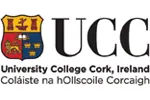

Ireland
University College Cork (UCC)| The award | How you will study | Study duration | Course start | Domestic course fees | International course fees |
|---|---|---|---|---|---|
| BSc (Hons) | Full-time | 4 years | September | EU 3000 | EUR 3000 |
Overview
This degree course provides a solid education in the fundamentals of financial mathematics and actuarial science, as well as a strong grounding in the core disciplines of the Mathematical Sciences. The quantitative analytical skills developed in this course are used in a variety of settings, both commercial and non-commercial.
Course Details
Year 1 Modules (5 credits each):
Core
AM1052 Introduction to Mechanics;
AM1053Introduction to Mathematical Modelling;
AM1054Mathematical Software;
MA1057Introduction to Abstract Algebra;
MA1058Introduction to Linear Algebra;
MA1059Calculus;
MA1060Introduction to Analysis;
ST1051Introduction to Probability and Statistics
Electives
AC1107Investment in Capital Assets (5 credits);
AC1108Introduction to Valuation and Risk (5 credits);
BL1005Introduction to Ecology (5 credits);
CM1006Introduction to Chemistry for Physicists and Mathematicians (10 credits);
CS1061Programming in C (5 credits);
CS1065Computer Applications with Visual Basic (5 credits);
CS1069Introduction to Internet Technologies (5 credits);
EC1213 & EC1214Principles of Economic Analysis I & II (5 credits each);
PA1003Principles of Market Analysis (10 credits);
GL1001Introduction to Geology (5 credits);
PY1052 & PY1053Introductory Physics I & II (10 credits each);
PY1054Special Topics in Physics (5 credits)
Year 2 Modules:
Fourier Methods; Mathematical Analysis; Ordinary Differential Equations; Linear Algebra; Multivariable Calculus; Discrete Time Financial Models; Financial Mathematics; Financial Modelling for Actuarial Science; Regression Analysis; Probability & Mathematical Statistics
Year 3 Modules:
Core
C/C++ Programming with Applications; Mathematical Analysis; Derivatives, Securities & Option Pricing; Financial Modelling for Actuarial Science; Stochastic Modelling; Generalised Linear Models; Statistical Theory of Estimation; Statistical Theory of Hypothesis Testing
Electives
International Fiannce; Mathematical Modelling; Computer Modelling & Numerical Techniques; Vector & Tensor Methods; Partial Differential Equations with Applications; Computational Techniques; Complex Analysis; Metric Spaces & Topology; Principles of Market Analysis; Survival Analysis; Stochastic & Survival Models for Actuarial Science; Methods of Reporting in Actuarial Science
Note:Choice of Electives in Year 3 will have a direct bearing on the number of recommendations for exemptions from professional actuarial examinations for which a FMAS graduate may be eligible
Year 4 Modules:
Core
Measure Theory & Martingales; Continuous Time Financial Models; Computational Finance; Stochastic Modelling; Statistical Methods in Insurance; Time Series
Electives
Securities Analysis; Empirical & Behavioural Finance; Corporate Financing; International Finance; Vector & Tensor Methods; Nonlinear Dynamics & Control; Partial Differentiaal Equations with Applications; Computational Techniques; Topics in Applied Mathematics; Applied Stochastic Differential Equations; Perturbation & Asymptotic Methods; Complex Analysis; Metric Spaces & Topology; Functional Analysis; Project; Topics in Modern Algebra; Topics in Differential Geometry; Survival Analysis; Stochastic & Survival Models for Actuarial Science; Financial Mathematics Project; Methods of Reporting in Actuarial Science; Statistical Consulting; Statistical Methods in Insurance; Practical Implementation of Statistical Analysis Techniques; Contingencies; Computational Statistical Methods for Actuarial Science
Further optional courses offered by the Department of Accounting and Finance may also be taken. In Years 3 and 4, there are opportunities for concentration on either the more applied or the theoretical aspects.
The course provides full coverage of the core technical syllabus of the Institute and Faculty of Actuaries, and has a set of associated Exemption Recognition Agreements in place, which enable graduates of this degree to pursue careers in the actuarial profession.
See the College Calendar for additional information on the Programme and the Book of Modules for further information on the modules.
Fact File
Course Code: CK407
Course Title: Financial Mathematics and Actuarial Science
College: Science, Engineering and Food Science
Duration: 4 years
Teaching Mode: Full-time
Qualifications: BSc (Hons)
NFQ Level: Level 8
Costs: Full-time EU/EEA/Swiss State undergraduate students may be exempt from paying tuition fees. The State will pay the tuition fees for students who satisfy the Free Fees Criteria. In 2016/17 the Student Contribution Charge will be EUR 3,000 and the Capitation Fee will be EUR 165.
2017 Entry Requirements: Refer to CK407
Entry Points: CK407: 2016: 560 Points may vary each year.
Course Practicalities
Typically there are 18 contact hours per week for a total of 24 weeks of instruction. The contact hours include about 12 lectures and six tutorials/practicals. Each contact hour gives rise to at least two hours of study, including homework.
Assessment
Written exams take place before Christmas and in May. Not all modules will have formal examinations. Many modules use other types of assessment.
Application Procedure
Refer to CK407.
Further Contact Information
E: School of Mathematical Sciences: [email protected]
P: +353 21 420 5818
W: http://www.ucc.ie/en/matsci/
2017 Entry Requirements: Refer to CK407
Entry Points: CK407: 2016: 560 Points may vary each year.
Contact University College Cork (UCC) to find course entry requirements.
Below are some suggested courses at other providers that you may also be interested in:
Mixing & Mastering Electronic Music – Short Course Summer School
Catalyst - Institute for Creative Arts and Technology
Find out moreCoastal Communities and Regional Development Master Degree
University Centre of the Westfjords
Find out moreMaster of Business Administration (MBA) in International Business MBA
IFM Business School
Find out moreInternational Bachelor Economics and Business Economics International Bachelor
Erasmus School of Economics, Erasmus University Rotterdam
Find out moreIf you do not meet the entry requirements for this course then consider one of these courses from another institution:
There are 338 other courses listed from University College Cork (UCC). A selection of these are displayed below:
Find out more about studying in Ireland